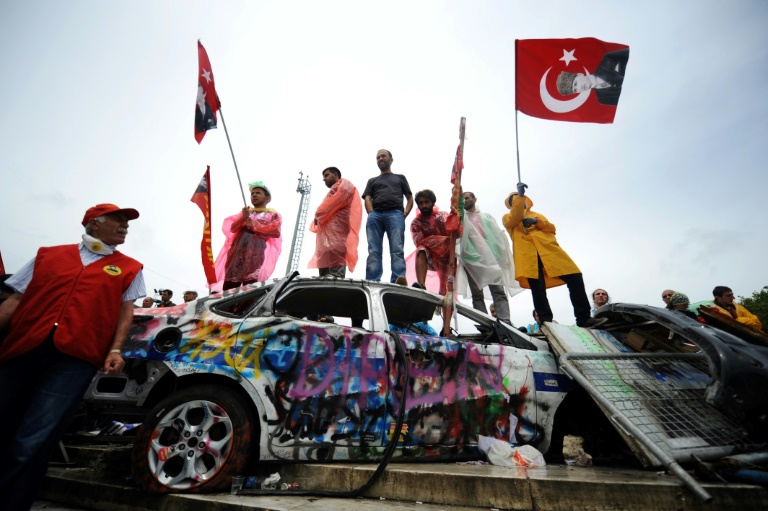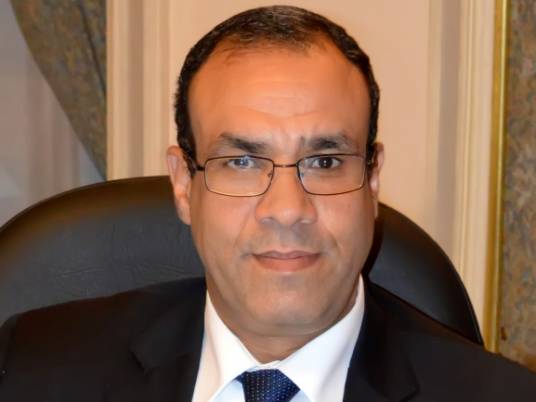Embattled Turkish Prime Minister Recep Tayyip Erdogan has chosen to portray himself as a martyr battling dark forces as he faces unprecedented protests against his government. It's a role that served him well in the past but this time round it is more a sign of weakness and panic, analysts said.
On Sunday he held a marathon 6 rallies of his supporters in 3 different cities during which he insisted he would stand firm against the "looters" and "extremists" calling for his resignation.
Erdogan, who is facing by far his greatest challenge since his Islamist-rooted AKP party came to power a decade ago, said the protesters were being manipulated either by the Turkish opposition or mysterious powers such as the "interest rate lobby.”
He also drew comparisons between the current unrest and the era when the Turkish army, in its role as guardian of the secular state, intervened repeatedly in the country's politics. It notably ousted 4 governments between 1960 and 1997.
"Today we are in the same situation as 27 April 27 2007," he told supporters Sunday at Ankara airport.
On that date the military publicly condemned plans to have Abdullah Gul, who co-founded the AKP along with Erdogan, run for president as the party's candidate.
Tens of thousands of supporters of the secular principles established by Mustafa Kemal Ataturk, seen as the founding father of modern Turkey, took to the streets to protest.
Erdogan's government was expected, like other administrations before it, to bend to the will of the generals.
But instead it stood up to the military and the AKP party went on to win legislative elections just months later, in July 2007.
Gul was elected president in August the same year and remains in the post today.
"Erdogan is pulling up the martyrdom card. It always worked very well for him in the past," said Amberin Zaman, an editorialist at the liberal daily newspaper Taraf.
"I think he is reverting to that mode of portraying himself as a martyr, as a victim of so-called dark forces who try to undermine him and the country, the dark forces as he paints them who want the return of Turkey to the bad old days."
But it is unlikely to work this time round, she said.
Erdogan has made Turkey's army, many of whose top generals have been jailed after alleged coup plots against him, much less of a player in the country's politics.
"The paradigm has shifted in Turkey, and largely thanks to him. So in some ways you can say that he is a victim of his own success, the fact that the military have been tamed," Zaman said.
"It is almost comical to characterise the protesters as he does, as agents of so-called foreign and internal powers coalescing to drag Turkey down. The fact that he paints this as the legitimate democratically elected government versus coup plotters, because that's what he has called them, just doesn't really hold," she said.
Cengiz Aktar, a political scientist at Istanbul's Bahcesehir University, argued that Erodgan does not understand what is driving the protesters, most of whom are educated, middle-class city dwellers who reject what they see as Erdogan's growing authoritarianism and the creeping Islamisation of their country.
Until recently, those who opposed him were the elite of the secular state who sought to defend their interests against the rising power of the AKP, whose support comes mostly from Turkey's more conservative Muslims, he noted.
Nuray Mert, a politics expert at Istanbul University, said Erdogan is in disarray.
"This time he has reacted in an abnormal way. I do not know if we have ever seen anywhere in the world a prime minister holding 6 rallies in the same day. It is because he feels threatened. With the interest the international media has shown (in the protest movement), he has succumbed to fear about his own imminent end," she said.
"There is this idea of great Turkish leaders working for the good of Turkey but who are destroyed by internal or external enemies of the country. Clearly Erdogan has this mentality, and that returns as soon as things start going badly," said Mert.



